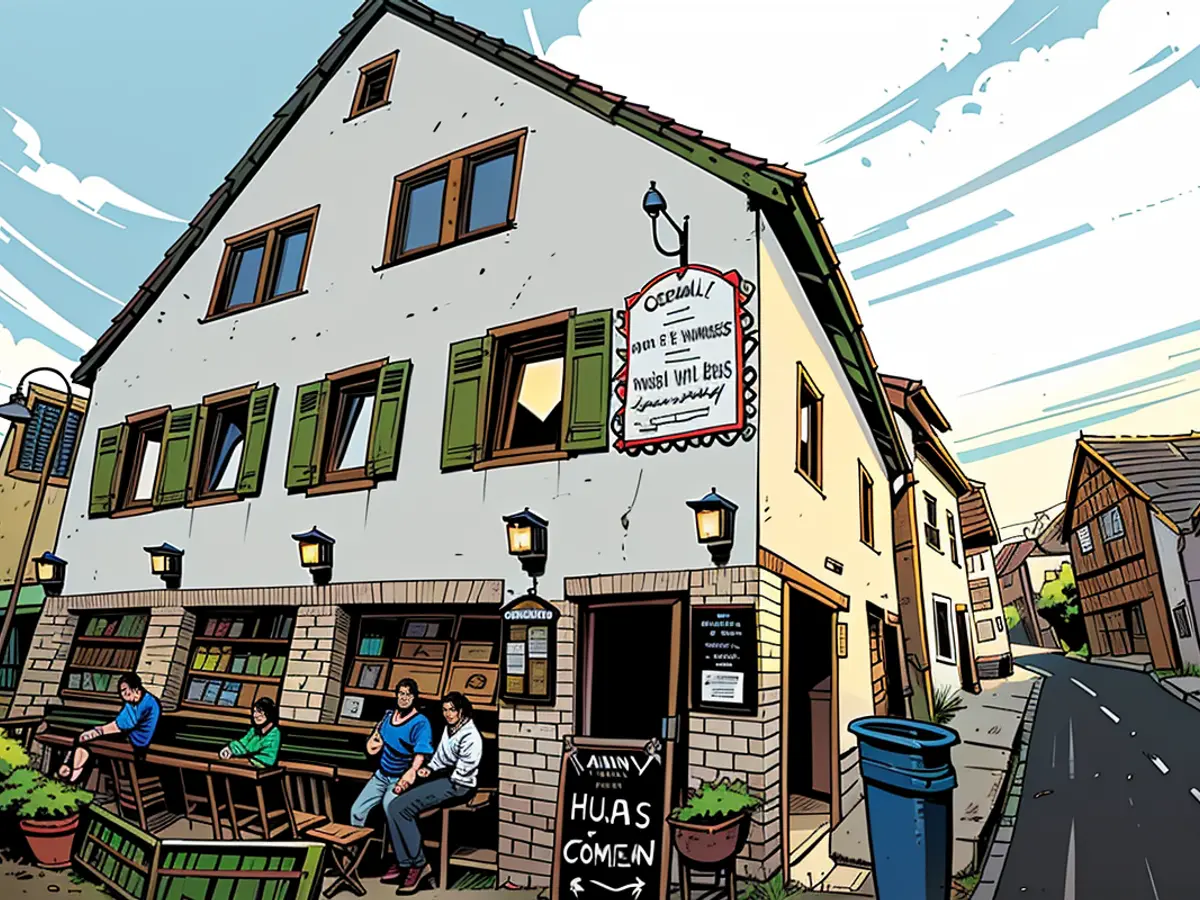- Increasingly, numerous villages in Hesse are lacking a local pub.
In Hessen, there's seen an upward trend of villages lacking a tavern. As per Oliver Kasties, the leader of Dehoga Hessen's Hotel and Restaurant Association, in 2017, 19 rural municipalities had less than one professional establishment per 1,000 residents, with two of them devoid of any inn. By 2021, this figure escalated to 42, featuring three locations without any establishment at all. As a result, the percentage of under-served municipalities skyrocketed from 4.5% (2017) to 9.9% (2021), according to Kasties. Currently, there's no more recent statistical data available.
Kasties attributes this decline to the German government's increase in the hospitality VAT and a steep surge in costs. Consequently, prices skyrocket, leading to a decrease in customer demand and turnover. Many individuals can no longer afford to dine out due to this tax hike, Kasties points out. Furthermore, there's a shortage of successors in these businesses.
Positive Narrative from Schlangenbad-Bärstadt
However, there are constructive instances in Hessen, such as the Taunus community of Schlangenbad-Bärstadt. Here, the residents established a cooperative to preserve the local tavern. The "VolksWirtschaft Lindehof," as per its initial chairman, Stefan Münzer, is financially steady. Nevertheless, Münzer confirms that this initiative isn't profit-driven. Rather, the members reap returns in a tangible form - as free beer at the annual general meeting.
The lack of taverns in rural municipalities has led to the Munich city council exploring the potential of revitalizing closed establishments. In contrast, Schlangenbad-Bärstadt, a Taunus community, successfully preserved their local tavern through a resident-led cooperative, the "VolksWirtschaft Lindehof."








